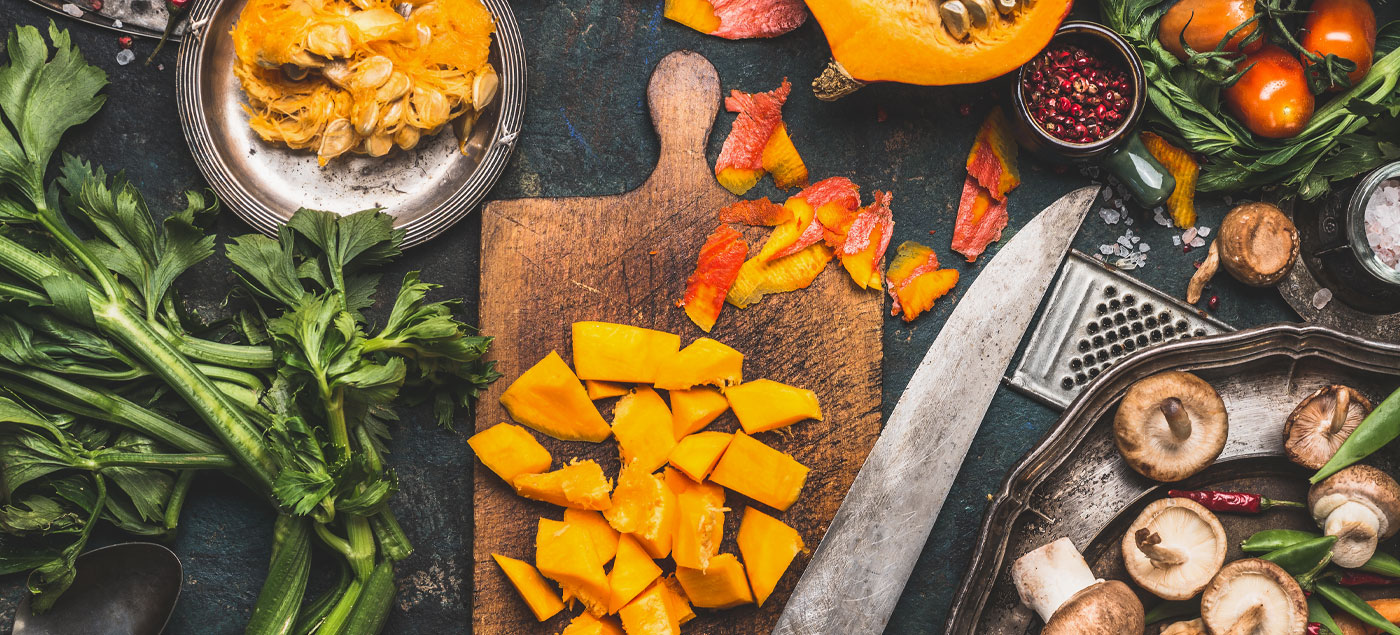What is the Best Food to Eat in Winter?
20th Nov 23

Changes in weather and seasons have a bigger effect on us than we often think. You might find that as the days grow shorter and colder, you find it easier to skip the gym or your workout or snack more on those higher-calorie foods. This isn’t unusual, and you’ll find that most people feel the same, but these habits are just as unhealthy now as they are in the Summer. It all comes down to adjusting our mindsets, routines and meals as the darker months draw near. So what is the best food to eat in Winter to stay healthy but help you feel satisfied?
Want to move fast? Jump to the right section below.
Sticking to a Healthy Diet
We know sticking to a healthy diet is easier said than done sometimes, but it doesn’t have to be. Naturally, when the seasons change, so do we. Our moods, what we like to eat and drink, and what we can and can’t do all change. And like the seasons, we need to acknowledge and understand the importance of these phases and changes in our routine, if we stuck to one routine all year round, we’d soon get bored.
Going into the Winter months, sticking to a healthy diet has many benefits. The main one is that a healthy diet means a healthy immune system. This helps lower the risk of catching illnesses and helps you fight them off if you are unlucky enough to catch a bug. A healthy diet means your body has reserves of everything it needs to fight off viruses. Winter also gives us time to try different foods. The supermarkets will start to supply different types of fruits and vegetables, and it’s a great time to try something a bit different and shake up your meal times.
Eating right will give you the energy to get up and do things you may not be motivated to do, such as going to the gym or for a run. But like diets, changing your exercise in these months can also be a way to keep motivated by giving yourself something different to try that doesn’t involve stepping out into the cold. Home gym equipment is a great alternative as you can work out in your own time in front of your TV or in your bedroom without having to face the unpredictable weather or drag yourself to the gym in the dark.
Best Foods to Eat in Winter
Root Vegetables

Root vegetables are perfect in the Winter. Many of them can withstand the Winter months and so are available from most supermarkets. Root Vegetables can be cooked with meals or in them; they’re ideal for roasts, pies, soups and stews, and healthy meals that keep us warm whilst it’s cold outside.
Vitamin-D Foods

The lack of sun in the Winter months means that many of us don’t get nearly enough vitamin D in our systems. Lack of vitamin D can lead to low moods, anxiety and depression, which can often cause us to eat more high-calorie foods to make us feel better. Foods like mushrooms, salmon, eggs, milk and red meats are excellent sources of vitamin D and can make some really hearty Winter meals.
Porridge
Porridge is the perfect slow-release breakfast option as it provides you with energy slowly to keep you going through the morning, ideal for dark mornings. It’s light and warm, and you can choose what you have with it, whether you like it plain or with honey, fruits or even some cinnamon to add that extra bit of warmth.
Soup

Soup is a staple Winter meal; it is full of everything your body needs in Winter, such as protein and fibre, without being full of calories. You can make your own or pick one of the many different flavour options to suit your tastes. Perfect for lunch or dinner to keep you warm during Winter.
These are just some of the best foods to eat in Winter, but make sure to keep your diet varied and exciting and try something different this Winter. Like the seasons, alter your routine to suit your body’s needs, and you’ll be sure to see the benefits to your mood and energy levels.

Before beginning any exercise or nutrition program, consult your physician, doctor or other professional. This is especially important for individuals over the age of 35 or persons with pre-existing health problems. Exercise.co.uk assumes no responsibility for personal injury or property damage sustained using our advice.
If you experience dizziness, nausea, chest pain, or any other abnormal symptoms, stop the workout at once and consult a physician or doctor immediately.









